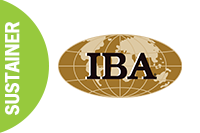Nationwide, people are optimistic that the pandemic’s impacts on businesses are waning. Here in the state of Washington, mask mandates are being lifted and hospitality businesses are preparing for a summer of travel and sit-down dining. But the supply chain crisis will not be solved overnight, and new challenges abroad could have impacts on businesses here. What, if anything, can operators expect to be faced with in the coming months as sanctions on Russia and fighting in Ukraine threaten to impact an already-reeling supply chain?
Oil
The most obvious and instantaneous impact consumers and businesses will notice is the rising price of gas. Consumers at the pump will certainly notice that gas prices are rising and they are already up 35% from this time last year. Additionally, there is typically an increase in prices during the summer months, with a 25% increase by Memorial Day, historically. While the rising price of crude oil will certainly affect the global supply chain and freight costs, operators who have been experiencing and expecting inflation across the board and shortages from suppliers might not be able to tell which price increases are because of the price of oil. The best way to prepare is to expect price increases across the board.
Wheat and sunflowers
The majority of the world’s sunflower oil is produced in Russia and Ukraine, which mostly affects goods here like potato chips, but expect a significant impact on bulk purchases. Wheat is a major export of Russia, but the wheat harvest is later in the summer which means that a prolonged conflict will lead to prices even higher than the record highs we are currently experiencing. If that happens, the list of affected products is immense with pasta and pre-packaged bread likely to see the biggest impact. The main exports from Russia are natural gas, wheat, barley, corn and fertilizer.
Shipping and sanctions
In the final days of February, the global shipping company Maersk announced that it would temporarily suspend all shipments to and from Russia by ocean, air, and rail, but shipments of food and medicine would still be allowed. Other companies have followed suit.
Many of the sanctions from the West targeted sectors that will have less of an impact here at home. So far, energy is not the focus and Russia’s banking and technology sectors are the main focus. There is still the possibility of more sanctions, but with oil rising already, placing additional restrictions on energy exports is a last resort.
The reality of the situation is that all exports from Russia will be affected. Because Russian banks have been excluded from using the SWIFT messaging system, everything is impacted. Even with unrestricted trade from Russia, payments often go through a financial system dominated by Europe and the United States. By cutting off access to those currencies, trade outside of Russia is extremely difficult.
More of the same struggles
Even with these drastic moves limiting Russia’s ability to trade, the economic consequences of these moves might not have a disastrous effect. Russia accounts for less than 2 % of global domestic product, so other countries will probably experience minimal impacts. For businesses in Washington, they have been dealing with constant supply chain struggles for the last two years, the advice remains the same. Plan ahead, buy local when you can and stay in contact with your suppliers.
Many of our members have asked how they can help the people of Ukraine during these very scary times. There are a number of ways you can support them including the World Central Kitchen. You can learn more on our post about Ukrainian support here.


















![[Class, May 20] ServSafe Manager, Kent](https://wahospitality.org/wp-content/uploads/2018/07/CALEND1-150x150.png)







